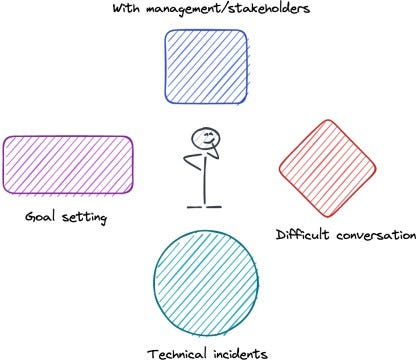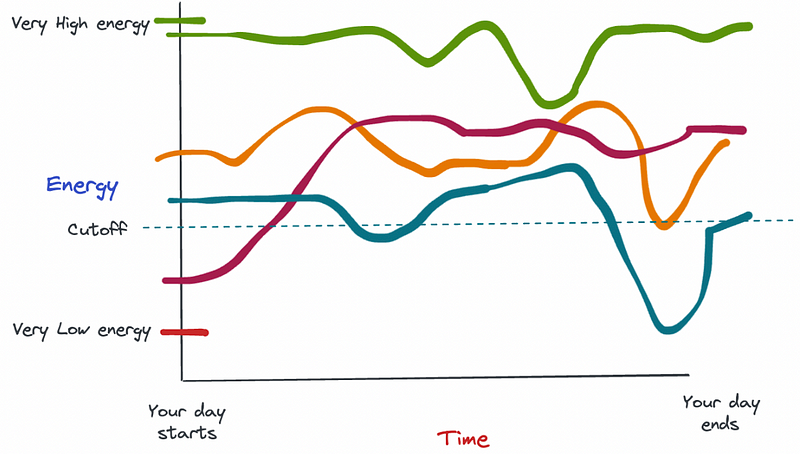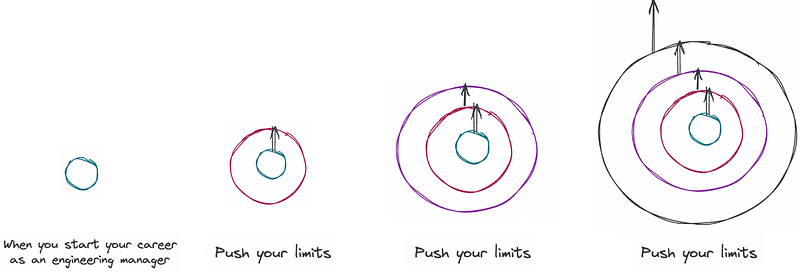Mastering Self-Management for Engineering Managers
Written on
Self-Management Essentials for Engineering Managers
If you've recently stepped into the role of an engineering manager, you've likely been advised on the importance of effective people management. This guidance is spot on. However, remember that the individuals you interact with include your fellow engineering managers, your own supervisor, your direct reports, and various stakeholders. So, where should you focus your management efforts first?

The answer is straightforward: Begin with yourself. Before you can effectively lead others, it's crucial to enhance your own self-management skills. In this piece, I will introduce the SELF framework—comprising Situation, Energy, Learning, and Focus—to help engineering managers cultivate self-awareness and self-care.
Situations (S)
As an engineering manager, you'll encounter a myriad of situations throughout your leadership journey. These could range from exhilarating and engaging scenarios to more mundane or even anxiety-inducing moments, including conflicts, urgent technical issues, and communication with stakeholders. Your attitude and mindset in any given situation fundamentally define who you are.

People will form their impressions of you based on how you navigate these diverse situations. Remember Charles R. Swindoll's insight: "Life is 10% what happens to you and 90% how you react to it."
To improve your handling of situations: - Anticipate your daily agenda and the likely scenarios you’ll face. This proactive approach can help you remain calm and composed. - Maintain situational awareness to assess the context and your role within it effectively. - Take the initiative to create necessary situations instead of passively waiting for them to arise.
With practice, you can enhance your ability to manage various circumstances.
Energy (E)
Energy is the capacity to engage actively, both mentally and physically. Being aware of how you allocate your energy is essential. Remember, your energy is contagious; the way you communicate can influence the energy of those around you. While it’s unrealistic to maintain high energy levels at all times, it’s important to minimize the impact of fluctuations on your team.

Camille Fournier aptly stated that great managers notice changes in energy levels and care enough to inquire about them—this principle applies to you as well.
To enhance your energy management: - Avoid micromanaging; delegate responsibilities to your team. - Empower your team to self-manage when possible. - Say "no" to low-priority tasks to conserve your energy. - Redirect your energy toward meaningful goals and recognize your peak productivity times.
Learning (L)
Assuming you've settled into your role as an engineering manager for a year, how frequently have you evaluated your career path? Have you taken the time to reflect on your development?
Regularly assess your learning trajectory and career objectives: - What new skills are you acquiring as an engineering manager? - Are you dedicating sufficient time and resources to your learning?
Learning can occur through experience—this principle is not limited to technical roles. Embracing challenging situations can accelerate your professional growth.

Consider learning through: - Experimenting with new processes that enhance team efficiency. - Engaging in one-on-one conversations to explore new formats. - Showcasing your team's successes to upper management and seeking feedback. - Aligning your team's goals with the organization's vision.
Focus (F)
The key to focus is prioritizing two critical elements: your immediate priorities and what truly matters at the moment. You need clarity to accomplish tasks effectively.
I categorize my focus into three timeframes: - Daily focus (45%): Prioritize tasks for today. - Weekly focus (35%): Concentrate on the week’s objectives. - Monthly focus (20%): Address the month’s broader goals.
Adapt these percentages as needed. Once you’ve tackled your daily priorities, shift to your weekly and monthly objectives.
Also, ensure that you concentrate on what’s urgent at the moment, whether that's communicating with stakeholders about technical issues or assisting a teammate who is facing challenges.
To tackle distractions: - Recognize the urgency of interruptions and respond appropriately. - Schedule dedicated time for less urgent matters to ensure they are addressed without neglect.
Avoid multitasking; prioritize one task at a time. Start each day by reviewing your focus areas and tracking your progress.
SELF Review
Once you start applying the SELF framework, it’s crucial to maintain a weekly journal to evaluate how well you’ve managed your Situations, Energy, Learning, and Focus. Set aside time for self-reflection to assess your management skills. Once you’ve mastered self-management, you’ll be better equipped to lead your team and enhance overall performance.
Output from your efforts = Output from your team + the influence you have on others. - James Stanier
That's all for now. I’d love to hear your thoughts on self-management. Have you tried any of these strategies? Share your experiences in the comments below!
The BIGGEST MISTAKE New Engineering Managers Make
This video discusses common pitfalls new engineering managers encounter and how to avoid them.
What Engineering Managers Should Do (and Why We Don't)
In this insightful talk, Lena Reinhard explores the necessary actions engineering managers should take to succeed and the reasons behind common hesitations.